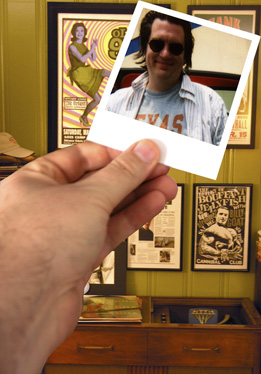 An hour into the Fort Worth Symphony's performance of Mahler's Ninth on Saturday night at Bass Hall, conductor Miguel Harth-Bedoya took an extended pause. His orchestra had reached the end of the third movement and Harth-Bedoya had coaxed every ounce of emotion from the first three movements. Now they were prepared to assault the summit -- the emotional climax of the adagio. He took a handkerchef from his pocket and mopped the sweat from his brow. He looked to his left at his violinists and smiled slightly. They smiled back.
An hour into the Fort Worth Symphony's performance of Mahler's Ninth on Saturday night at Bass Hall, conductor Miguel Harth-Bedoya took an extended pause. His orchestra had reached the end of the third movement and Harth-Bedoya had coaxed every ounce of emotion from the first three movements. Now they were prepared to assault the summit -- the emotional climax of the adagio. He took a handkerchef from his pocket and mopped the sweat from his brow. He looked to his left at his violinists and smiled slightly. They smiled back.
"Are you ready?" he asked. They were ready.
The final movement is marked "very slowly and held back" and the FWSO walked the tightrope effectively. The fourth movement is filled with both sadness of death and the beauty of transcendence. Balancing this paradox is a technical challenge and the FWSO seemed to welcome the challenge. And at the end, they knew they had succeeded. They were obviously proud of their achievement. Deservedly so.
Mahler was never really appreciated in his time and listening to the Ninth, it's easy to hear why. It doesn't sound like 1910. It doesn't sound like the turn of the century. When did Mahler finally come into their own? With Leonard Bernstein's advocacy in the 1960s, after Auschwitz, after Dresden, after Hiroshima. As Lewis Thomas wrote, "I cannot listen to the last movement of the Mahler Ninth without the door-smashing intrusion of a huge new thought: death everywhere, the dying of everything, the end of humanity."
Maybe the FWSO's Mahler cycle is well timed -- the perfect soundtrack for America's Post-9/11, Iraq-era age of anxiety.
Saturday, August 25, 2007
Mahler's Ninth at Bass Hall
Posted by
Steve-O
at
9:33 PM
![]()
Labels: Bass Hall, classical music, Fort Worth, FWSO, Miguel Harth-Bedoya
Subscribe to:
Post Comments (Atom)

No comments:
Post a Comment